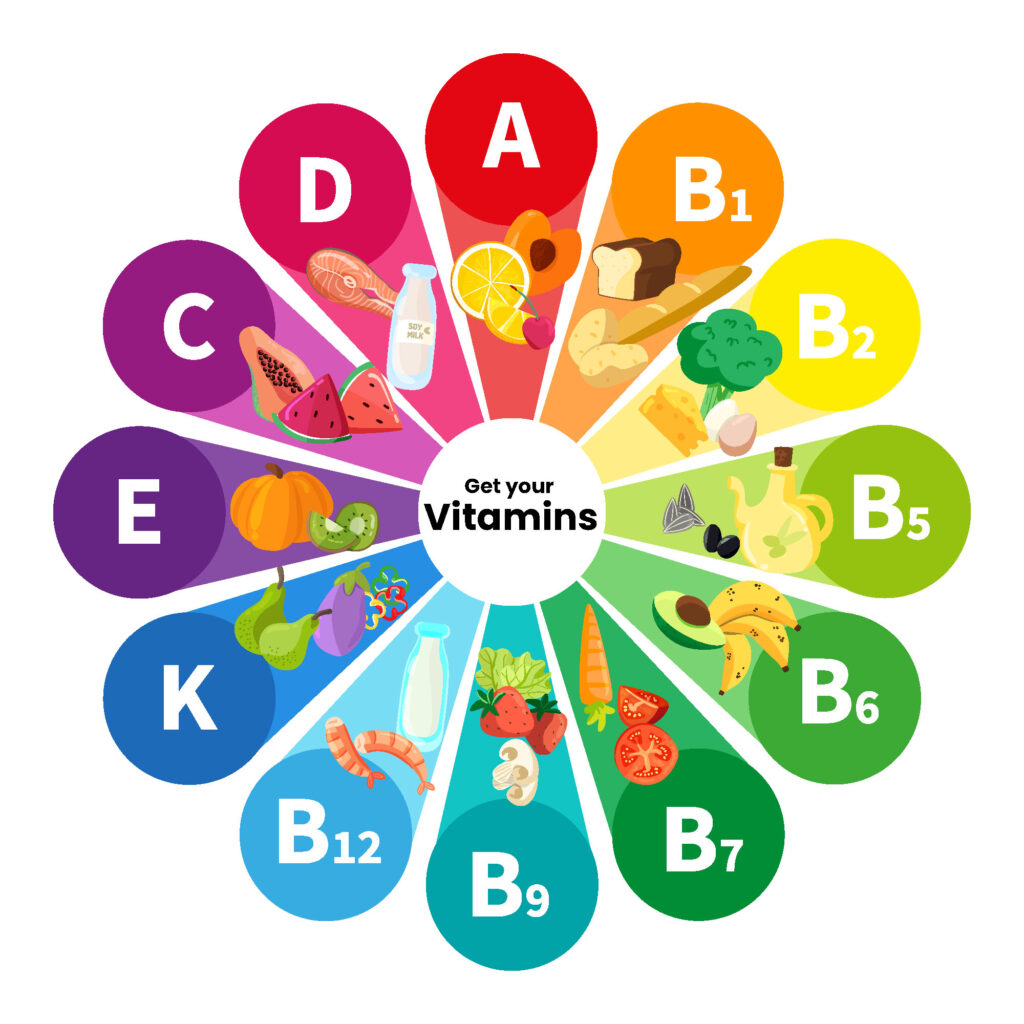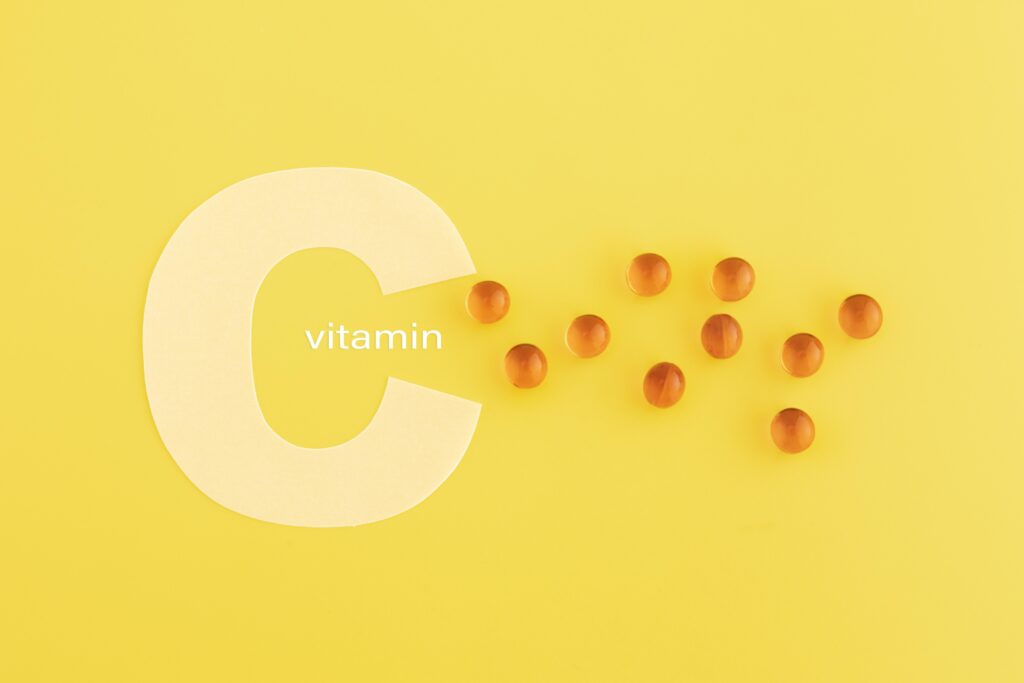
Water-soluble vitamins, such as B and C, are pivotal for maintaining optimal health and vitality. They are among the most researched and celebrated nutrients due to their myriad benefits and essential roles in the human body. But how exactly can you harness the full potential of these vitamins? In this article titled “10 Essential Benefits and Usage Tips of Water-Soluble Vitamins: B and C Unveiled,” we’ll delve deep into their significance, provide actionable tips for their use, and much more. Below is an outline of the topics we will cover:
- 5 Key Benefits of Vitamin B Complex You Need to Know
- 3 Crucial Roles Vitamin C Plays in Your Immune System
- Top 4 Signs of Vitamin B Deficiency and How to Prevent Them
- Simple Ways to Incorporate Vitamin C into Your Daily Diet
- Understanding Water-Soluble Vitamins: Dosage and Safety Tips
Stay tuned to uncover everything you need to know about these vital nutrients!
5 Key Benefits of Vitamin B Complex You Need to Know
The Vitamin B complex is a powerhouse of nutrients that play significant roles in our body’s overall functioning. From energy production to maintaining healthy brain function, the benefits of Vitamin B complex are vast and varied. Here are five key advantages:
- Boosts Energy Levels: Vitamin B complex helps convert the food we eat into energy. This is crucial for maintaining vitality throughout the day.
- Supports Brain Function: B vitamins, especially B6, B9, and B12, are essential for cognitive health. They aid in the creation of neurotransmitters, which help maintain a healthy brain.
- Promotes Red Blood Cell Production: Proper levels of B vitamins are necessary for the production of red blood cells, preventing anemia and enhancing oxygen transportation in the body.
- Enhances Mood and Mental Health: Studies suggest that Vitamin B complex can help alleviate symptoms of stress, anxiety, and depression.
- Improves Skin Health: B vitamins like Biotin (B7) are known for contributing to healthy hair, skin, and nails, giving you that natural glow.
3 Crucial Roles Vitamin C Plays in Your Immune System
Vitamin C is not just a vitamin but an essential nutrient critical for immune support and overall health. Here are three crucial roles it plays:
- Acts as a Powerful Antioxidant: Vitamin C protects your cells from damage by free radicals, thereby reducing the risk of chronic diseases.
- Boosts White Blood Cell Production: It enhances the production and function of white blood cells, the key players in fighting off infections.
- Enhances Skin Barrier: Vitamin C supports the skin’s barrier against harmful pathogens and enhances wound healing.
Top 4 Signs of Vitamin B Deficiency and How to Prevent Them
Recognizing the symptoms of Vitamin B deficiency early can help you prevent potential health complications. Here are four signs to watch out for and tips on how to address them:
- Fatigue: Constant tiredness can be a sign of B12 or B9 deficiencies. Including Vitamin B-rich foods like meat, dairy, and leafy greens can help.
- Mood Swings: Lack of Vitamin B6 can lead to irritability and mood changes. Incorporating foods such as chickpeas, salmon, and potatoes can boost your levels.
- Nerve Problems: A deficiency in B vitamins, especially B12, can cause numbness and tingling sensations. Supplements or fortified foods are recommended for prevention.
- Anemia: Pale skin and shortness of breath can signal a lack in Vitamin B9 or B12. Increase intake through enriched cereals and liver to combat this.
Simple Ways to Incorporate Vitamin C into Your Daily Diet

Integrating Vitamin C into your daily diet need not be a daunting task. Here are some simple and delicious ways to ensure you’re getting your daily dose:
- Eat More Fruits: Oranges, strawberries, kiwi, and papaya are high in Vitamin C. A fresh fruit salad can be a delightful addition to breakfast.
- Vegetable Choices: Bell peppers, broccoli, and Brussels sprouts are rich in Vitamin C. Add them to your salads or stir-fries.
- Smoothies: Combine Vitamin C-rich fruits and veggies into a morning smoothie for a refreshing and nutritious start to your day.
- Supplements: If dietary sources are insufficient, Vitamin C supplements can be a reliable alternative.
Understanding Water-Soluble Vitamins: Dosage and Safety Tips
Knowing the right dosage and safety tips for water-soluble vitamins is crucial to maximizing their benefits without running into health risks. Here’s a guide:
- Daily Recommended Intake: For Vitamin C, the recommended daily intake is 75 mg for women and 90 mg for men. For the Vitamin B complex, individual needs can vary based on specific B vitamins, but most adults require around 2.4 mcg of B12 and 1.3-1.7 mg of B6.
- Avoid Overdosing: Even though water-soluble vitamins are excreted through urine, taking excessive amounts can lead to side effects. For example, too much Vitamin B6 can cause nerve damage, while megadoses of Vitamin C might lead to stomach issues.
- Supplement Considerations: Always opt for high-quality supplements with clear labeling and refrain from exceeding the specified dosage without consulting a healthcare provider.
- Balanced Diet: The best way to ensure you’re getting the right amount of these vitamins is through a well-balanced diet that includes a variety of nutrient-dense foods.
How to Take Vitamin B
Understanding how to take Vitamin B can make a big difference in how effectively your body absorbs and utilizes it. Here are some pointers:
- With Meals: It’s best to take Vitamin B with food to enhance absorption and minimize gastrointestinal discomfort.
- Consistency is Key: Regular intake is crucial for maintaining optimal levels. Set a routine, such as taking your supplement with breakfast.
- Consult Your Doctor: Before starting any new supplement regimen, it’s always wise to speak with a healthcare provider, especially if you have any underlying health conditions or are taking other medications.
- Natural Sources: Incorporate natural sources into your meals, like eggs, dairy products, whole grains, and meats to boost your overall Vitamin B levels.
Vitamin C Antioxidant Properties
One of the standout features of Vitamin C is its antioxidant properties, which play an essential role in maintaining good health. Here are some of the key benefits:
- Combats Free Radicals: By neutralizing free radicals, Vitamin C helps protect cells and tissues from oxidative stress, thereby reducing the risk of chronic diseases such as cancer and heart disease.
- Enhances Skin Health: The antioxidant properties of Vitamin C support collagen production, which is essential for firm, youthful skin. This also aids in the healing of wounds.
- Eye Health: Antioxidants present in Vitamin C help reduce the risk of cataracts and other age-related eye diseases.
- Heart Protection: Studies suggest that Vitamin C helps improve endothelial function and blood vessel dilation, thereby contributing to better cardiovascular health.
In summary, water-soluble vitamins like B and C are indispensable to our health and well-being. From boosting energy levels and supporting brain function with the Vitamin B complex to enhancing immune support and providing antioxidant protection with Vitamin C, these nutrients offer numerous health benefits. Recognizing the signs of deficiencies and incorporating these vitamins into your daily diet can significantly improve your quality of life. Remember to pay attention to dosage and safety, and consult a healthcare provider when necessary. By understanding and utilizing these essential vitamins effectively, we can pave the way for a healthier, happier life.